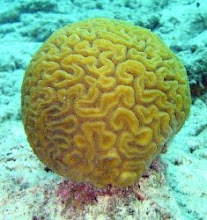CHINESE ANCIENT 爬行動物 蜥蜴 蛇 蛇 蠕蟲
RUSSIAN Рептилия Ящерица Змея Змея Червь
GREEK NEW Έρπων Σαύρα Φίδι Φίδι Σκουλήκι
ARABIC دودة أفعى ثعبان سحلية زاحف
Only English and Arabic here distinguish a snake from a serpent. This is not news. It reflects something about the political forms of the cultures, that some distinguish between serpents and snakes, and some do not. Just as an exercise, you figure it out.LINGUISTICALLY, an implied burden is placed on England to provide sufficient distinctions for common sense distinctions between snakes and serpents, so that the rest of the world can translate English into their languages so that they can:
A. Avoid being punished directly or indirectly by the English, and
B. Avoid falling into internecine conflicts with each other that would, except for invidious English distinctions, not happen.
Otherwise, the return to ancient homogeneity in Europe from Rome to England can suddenly flood the world with what seem to be, from Europe, utterly new demands on the world that can not be met. In that case, one would hope that they can:
A. Avoid being punished directly or indirectly by the Europeans, and
B. Avoid falling into internecine conflicts with each other that would, except for invidious European distinctions, not happen.
Now, when one looks at England, is one dealing with a snake, or a serpent?
To be fair, it is offered that England may have a friendlier and more sensible explanation which will nonetheless solve the problem. An example of the problem is that when a person in any other part of the world accuses a person of some wrong-doing and states that the person is, say, a Russian Zmeya, is he accusing the person of being a snake, or a serpent? These will appear all over the world in innumerable small court cases, and so the nations will be filled with an infestation that falls only on the common people, making them alone appear to be the evils of the world.
Saying “So what?” will not do. To force the common people downward, especially while thermonuclear war hangs over their heads, is simply wrong, especially since thousands of years of warlike struggle for the Moon have culminated in victory, moon rocks have been returned to the Earth by more than one nation, and the Moon actually has shoe prints on it made “in peace for all mankind” compliments of the great American venture. Admittedly the Apollo project was historical; its very name traces back at least two thousand years to an important and of course mythical Roman god of the Sun. The idea of 'for all mankind' is a simple, humble and much appreciated concession that attainment of the Moon did something supernal and transcendent for the world, greater than is yet known. The implications of the Moon flights are only beginning to unfold, and it will be hundreds of years before they are clear; thousands and more before they are quiet, and millions before they are devolved.
It is important for those with sensitive egos not to regard the only important thing about the moon flights is that they justify all that America might be disposed to do. It may be important for the United States, and indeed all who understand, to present the implications of the measurements and observations returned. Ideas which are yet unclear must not be dismissed as frivolous, stupid, alien, or insane. They must simply be answered. The work is relatively easy and important.
Among recurring naive assertions is that the Moon is so important, that the facts, ideas and opinions presented so far about it cannot POSSIBLY (pronounced agonizingly) be the whole truth. There MUST be something more about the Moon than that it is airless rock with no topsoil, no arable land, no water and no normal or survivable temperatures. There MUST be gardens or forests or jungles or oceans or something INSIDE the moon that have never been discovered. There's gotta be more to the Moon.
Nonsense to the person enmeshed and awake during the development of the techniques for flying to, observing and returning from the Moon, who has also studied factual astronomy of the solar system, these ideas circulate common as shoes among the uneducated and poor. They shape responses to other conditions such as economic, civil and developmental in their countries. The United States and other enlightened countries cannot get away from those countries. All are on the same planet.
Why is this important? Because in English law, a snake is not exactly a serpent. Why not? Because there is a letter 'k' in the English word, and to the common sense, k can means that the snake represents in one social sense, the king. But in English word 'serpent' the second letter is a vowel, which is an ethereal letter that is more evolved than the 'a' in snake. The letter r which appears in the third place can mean in the same social sense, royalty. Now, if you see a small snake, is it a member of the royal family or not? Is it the leading member thereof? It is up to the person speaking what sense a character signifies, and to the context of the composition or speech.
Not snakes, ourselves. More properly, not lizards or snakes. Not any kind of reptile, human beings are mammals. More carefully, many consider human beings monkeys, where only agross distinction between human beings and reptiles is necessary, one does not want to include ALL possible mammals, and the human-like qualities of monkeys is too precious to exclude.
In formal activity of course, it is important to carefully to observe certain other parameters such as strict morphological distinctions, DNA classification and the important and newer spiritual and other fine distinctions defined by religion and philosophy.
Sometimes, however, matters of importance are in terms that at first cross conventional assumptions, natural forms, morphology and other common sense definitions so broadly that it is worth the work to go over the whole field meticulously.
Reptiles are called poikilothermous, which means "various-temperatures"; 'poikilo' is a Greek root meaning "varied". It is not clear that the Greek root alone covers enough history in the global context, however, unless translations are readily available into the symbols and words of other cultures.
This case presents such a situation: the Chinese characters for lizard, reptile and dragon are all ancient, yet this does not imply that Chinese people consider themselves dragons. It means that dragons are of definite concern to Asian culture. The little more that I can say is that events when cold blood emerges is are of serious concern in both western and Asian society.
Asian distinctions between humans, monkeys, mammals, reptiles, lizards and snakes are all very ancient and common-sensical. The linguistic characters of Chinese for these forms have not changed in thousands of years. Western distinctions between the same terms are often based on understanding that has changed during many centuries as science, natural history, biology and zoology, medicine and other fields progressed; along with these changes, the language changed almost continually from Egyptian glyphs to early phonetic alphabets to Greek and Roman through medieval Latin to French, German and English languages spoken today.
Even so, the same broad fields of distinctions have serious implications in both Asia and the West, especially in medicine, physics and nuclear energy. Powerful new tools such as genetics allow detailed distinctions to be made among these and other forms, while at the same time the molecular biology allows the differences to be traced to chemistry thermodynamics, and electrical activity in fine detail.
The world is thus in a position to reconcile its concern with space flight, the Moon, and nuclear disarmament in terms that are truly global in that they can be understood by any person in any country no matter what language it is translated in, providing only that the language is modern and the person concerned comprehends the subject.
We GOTTA do something about this poverty.








No comments:
Post a Comment